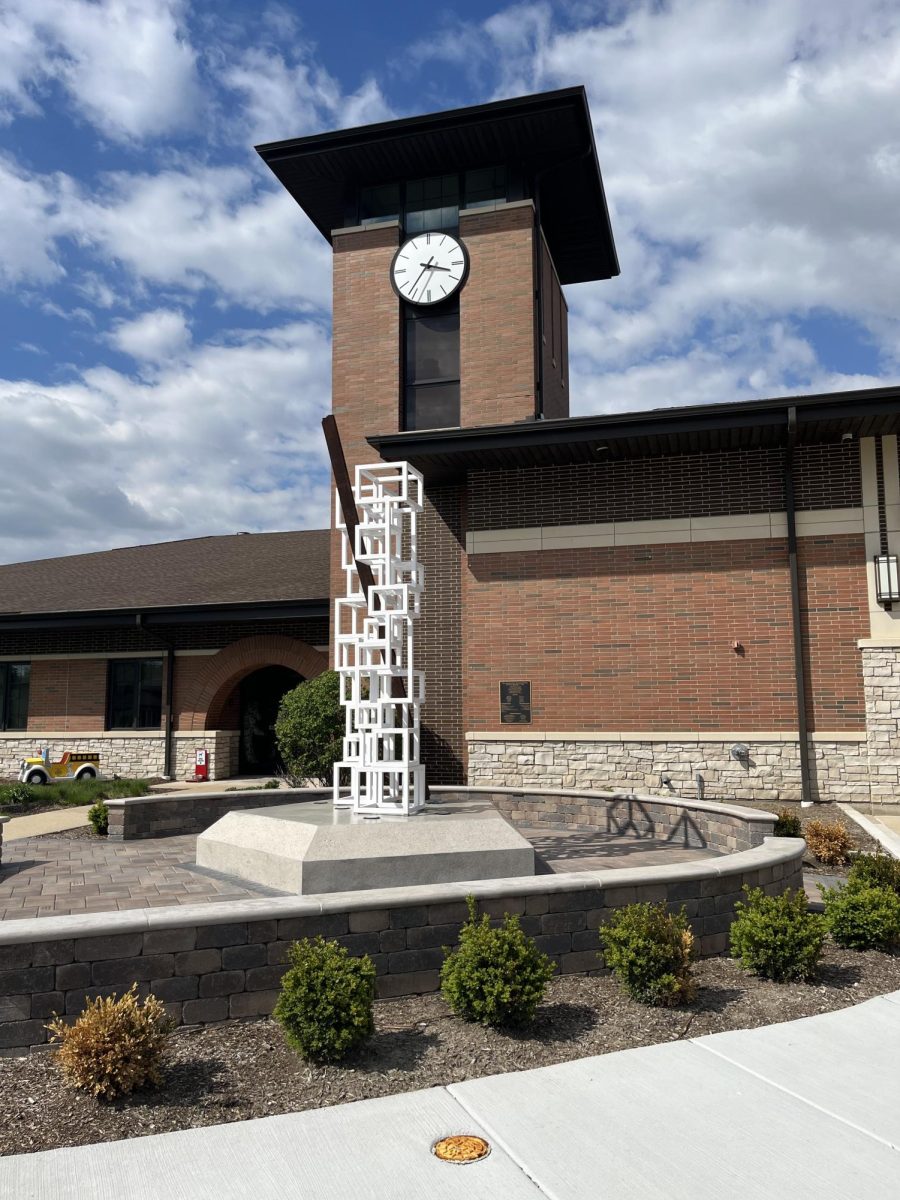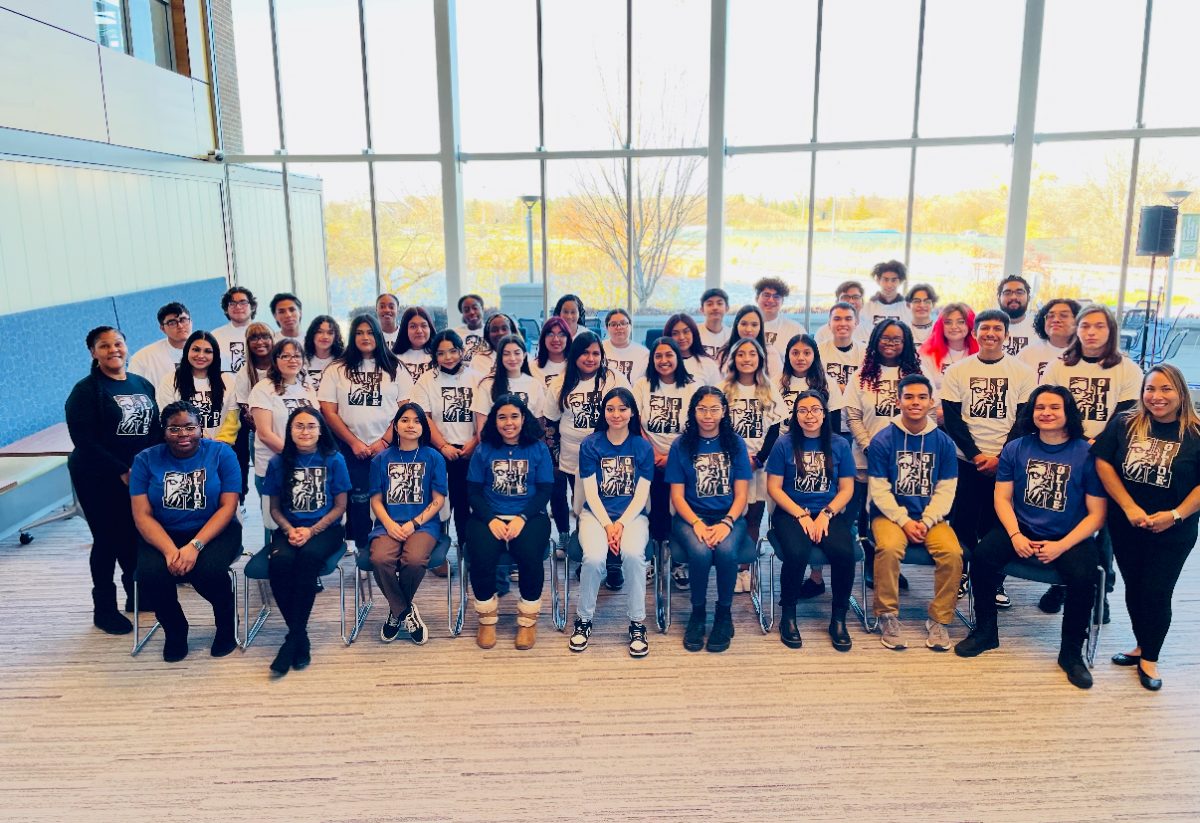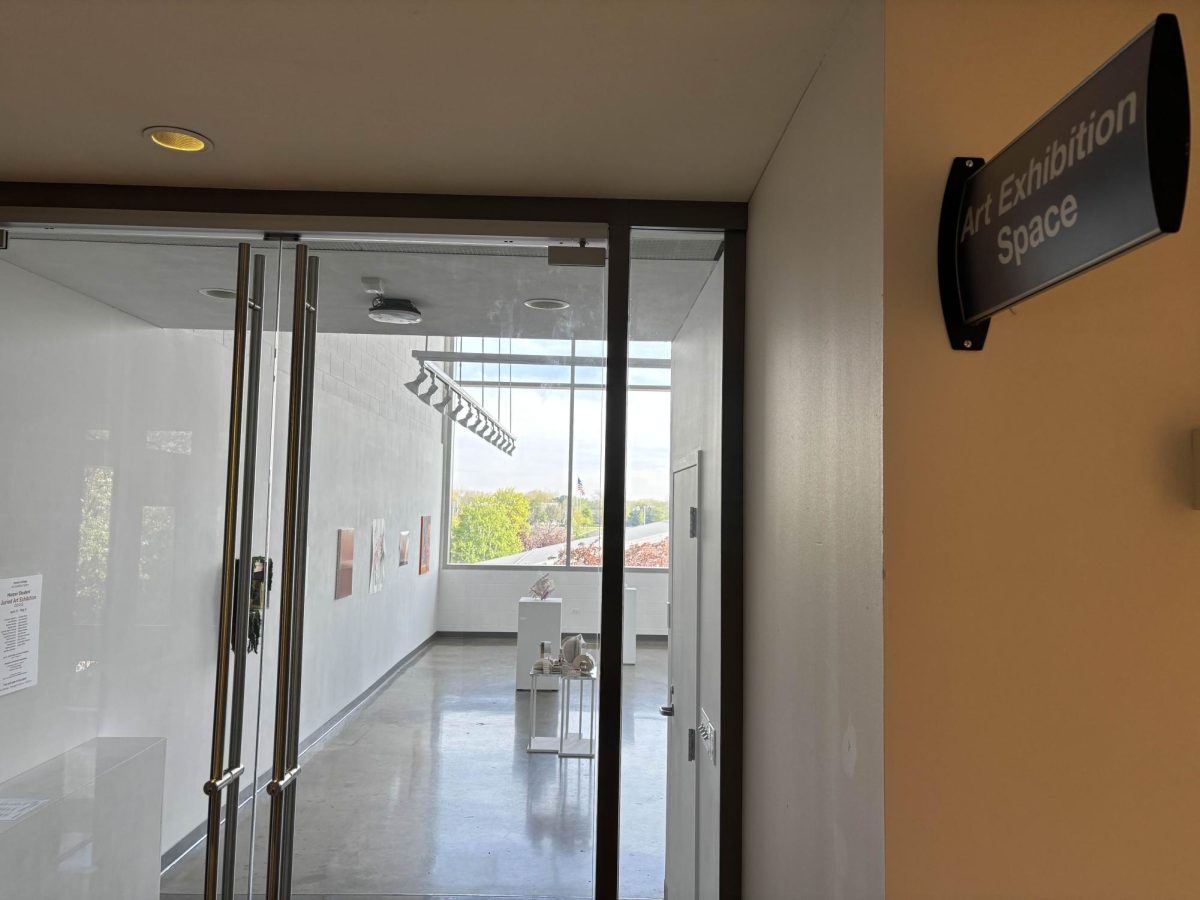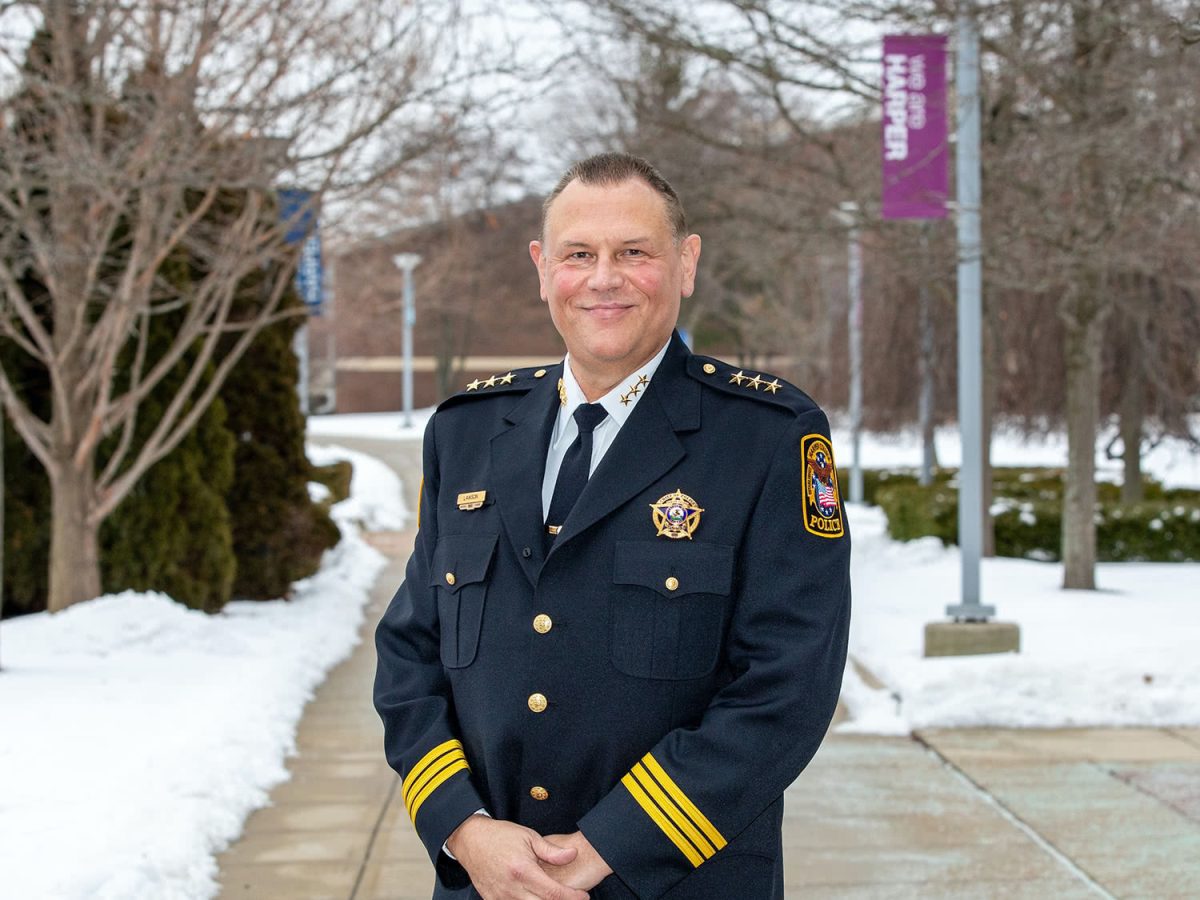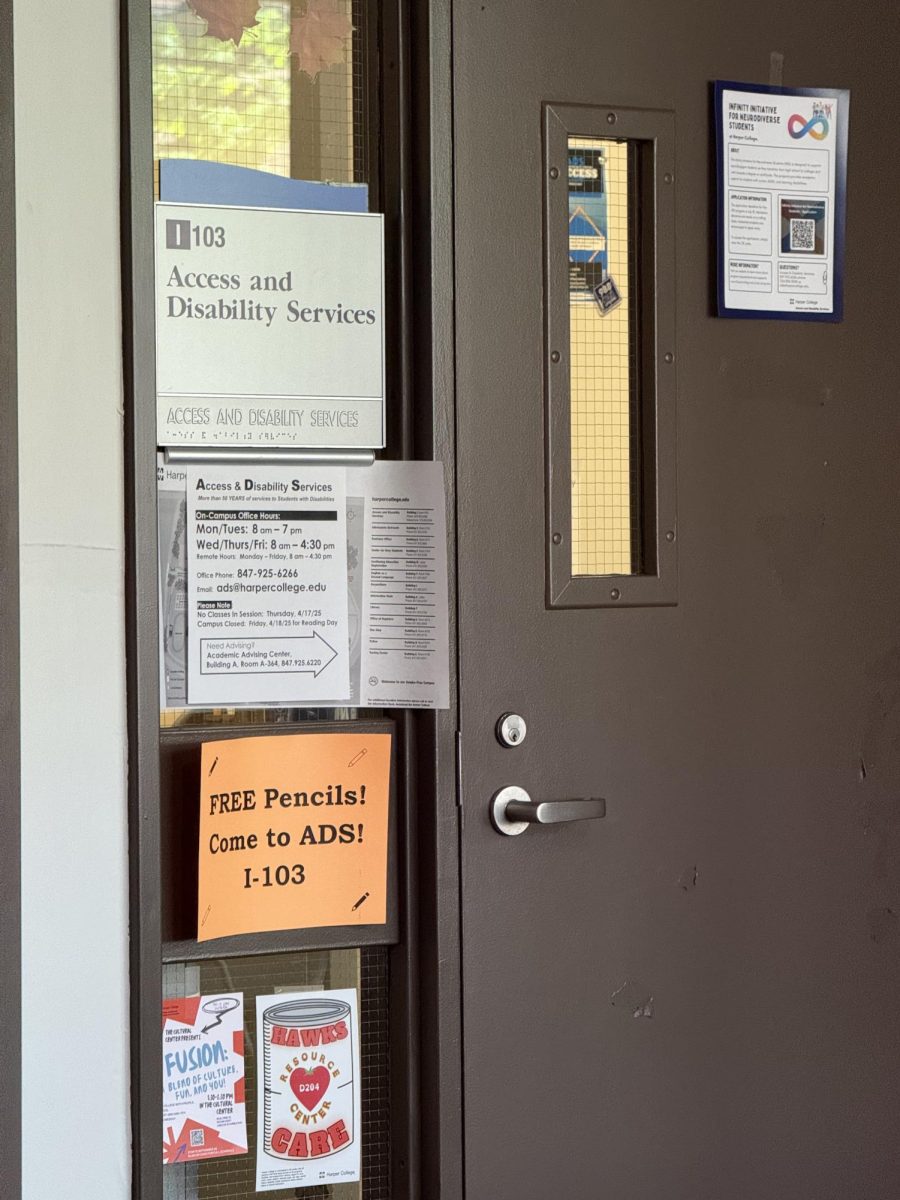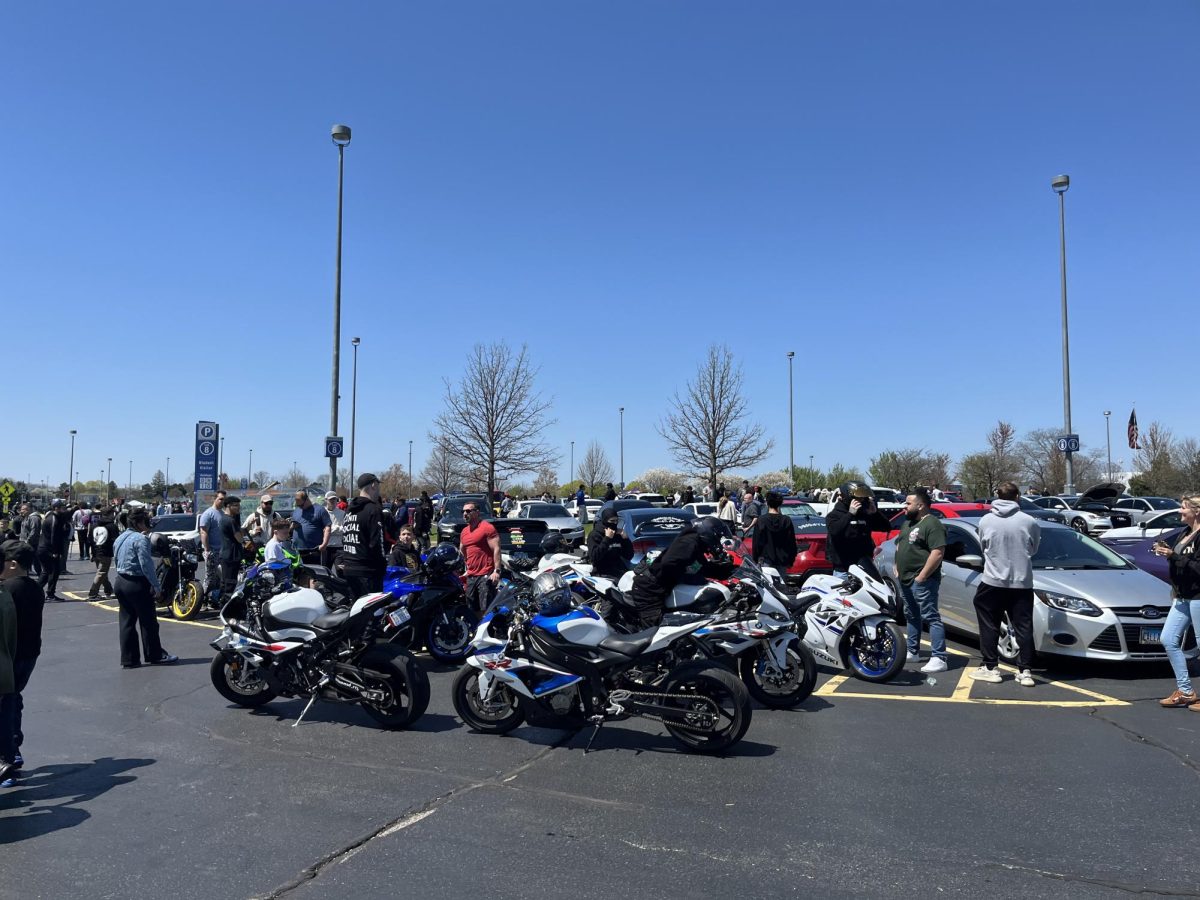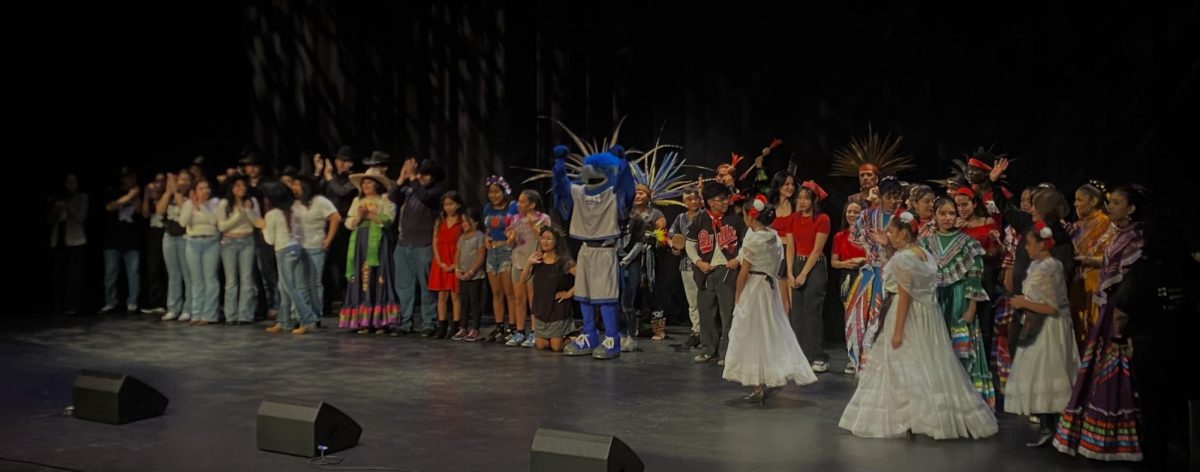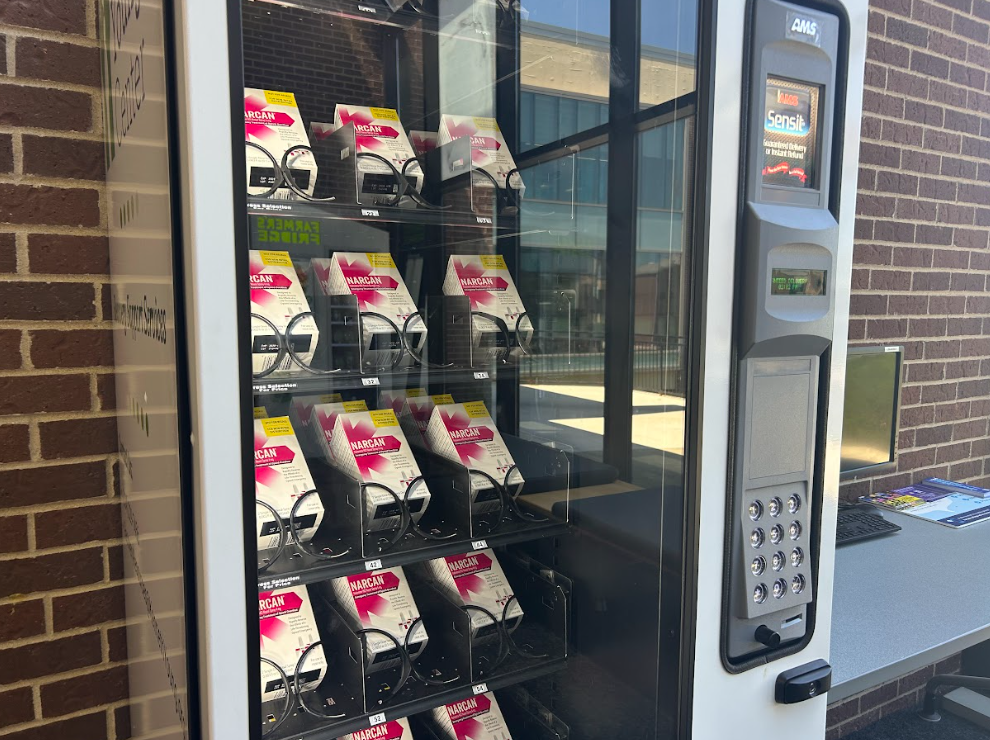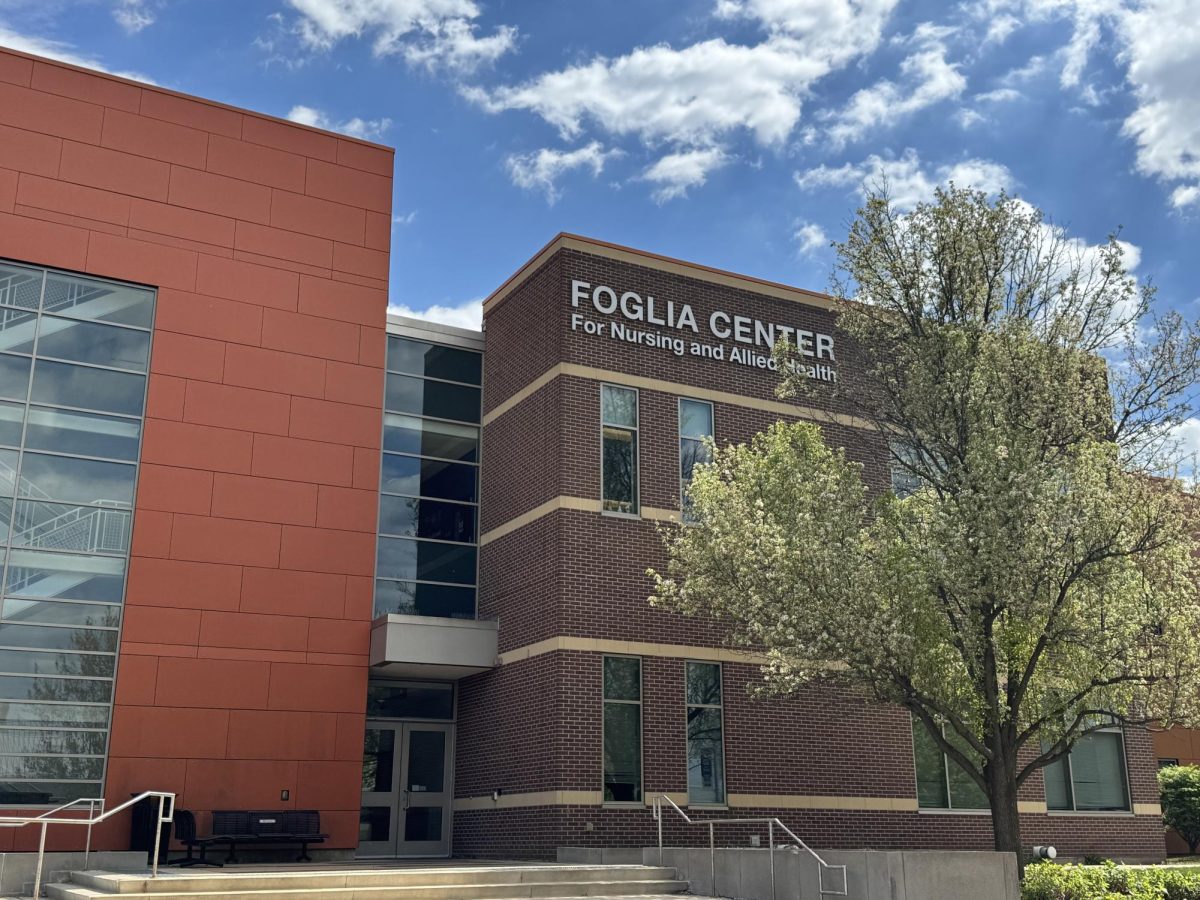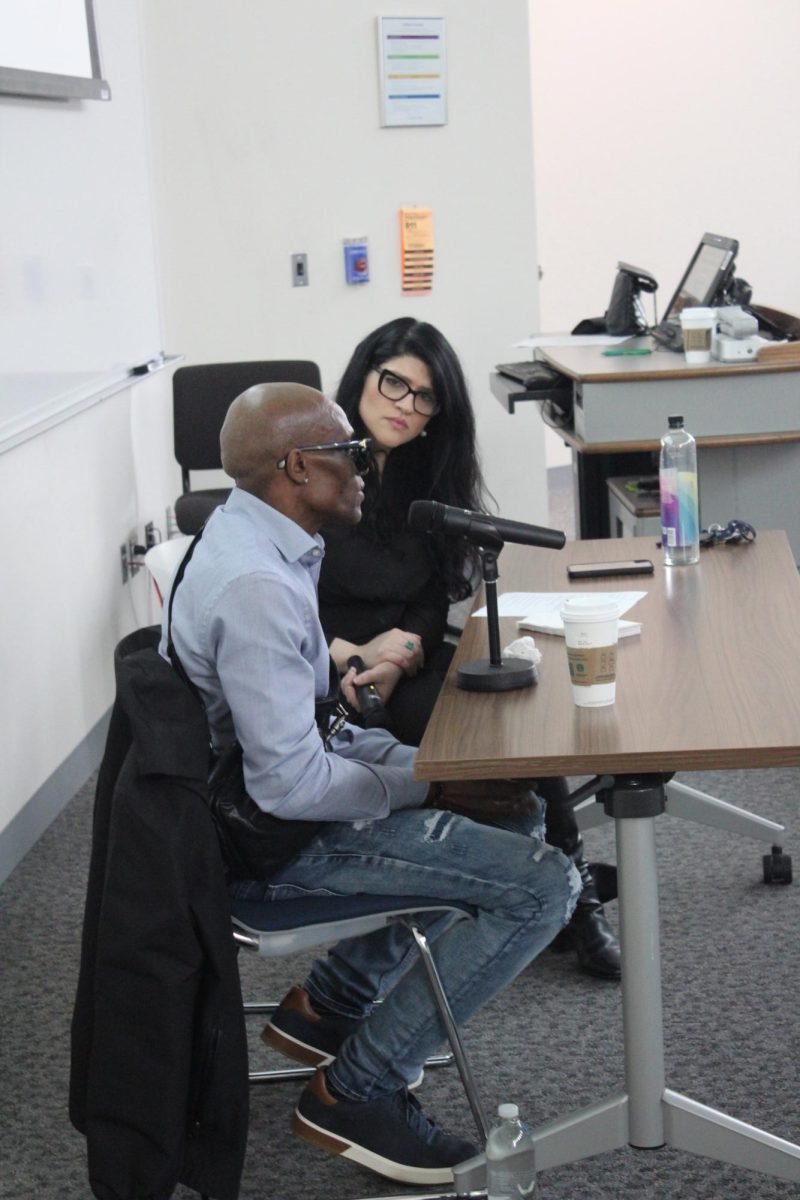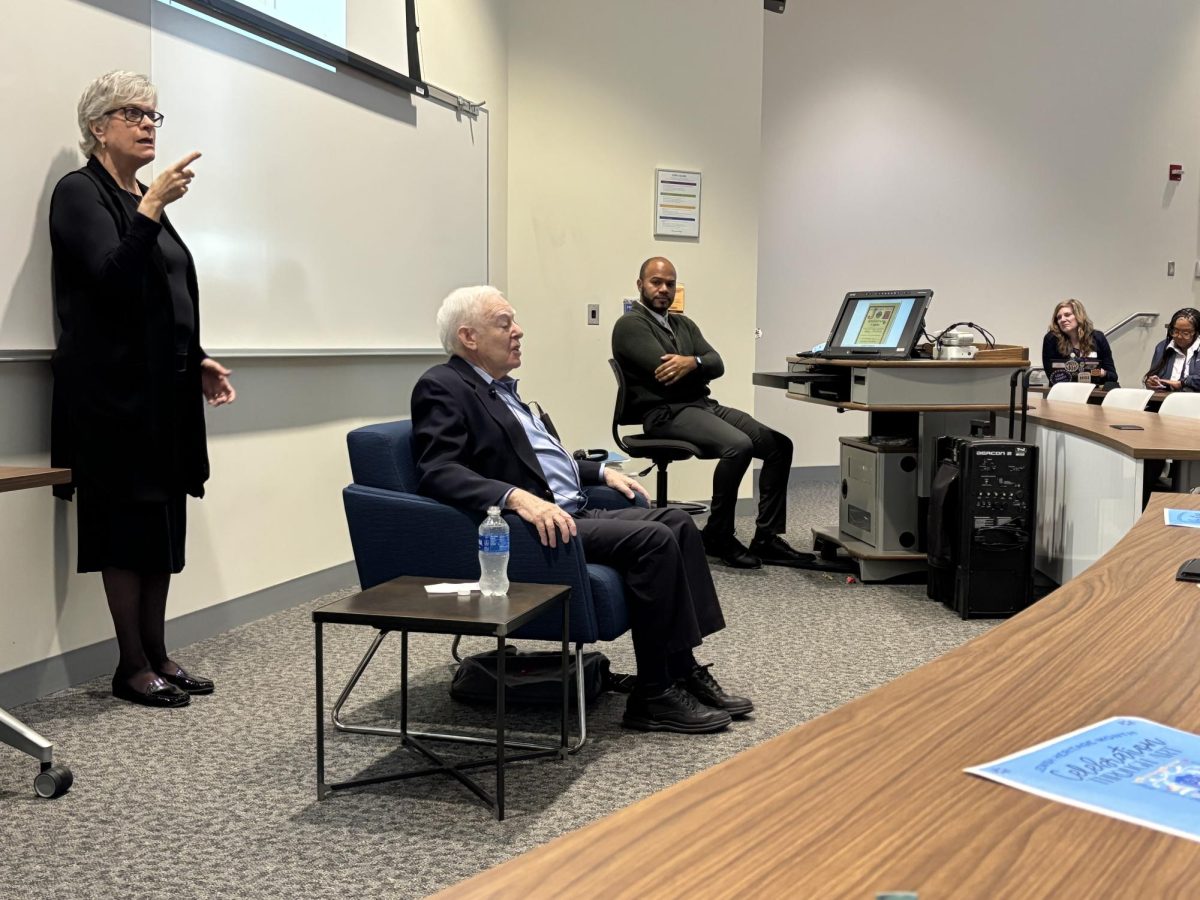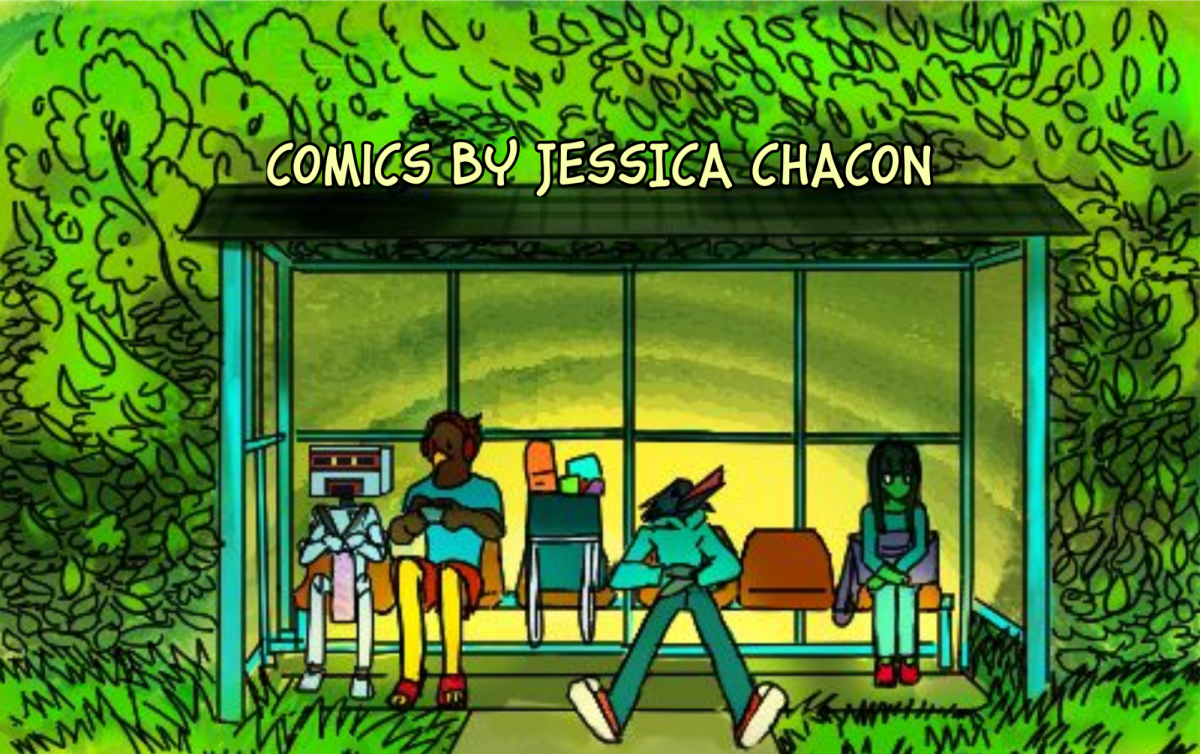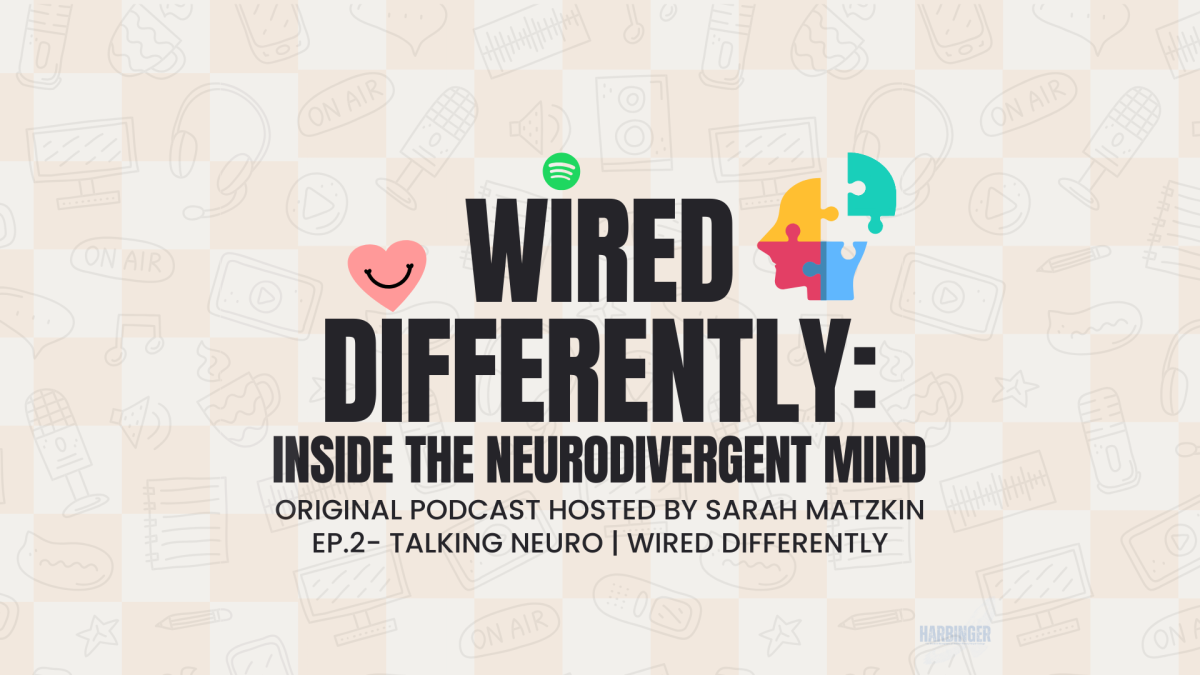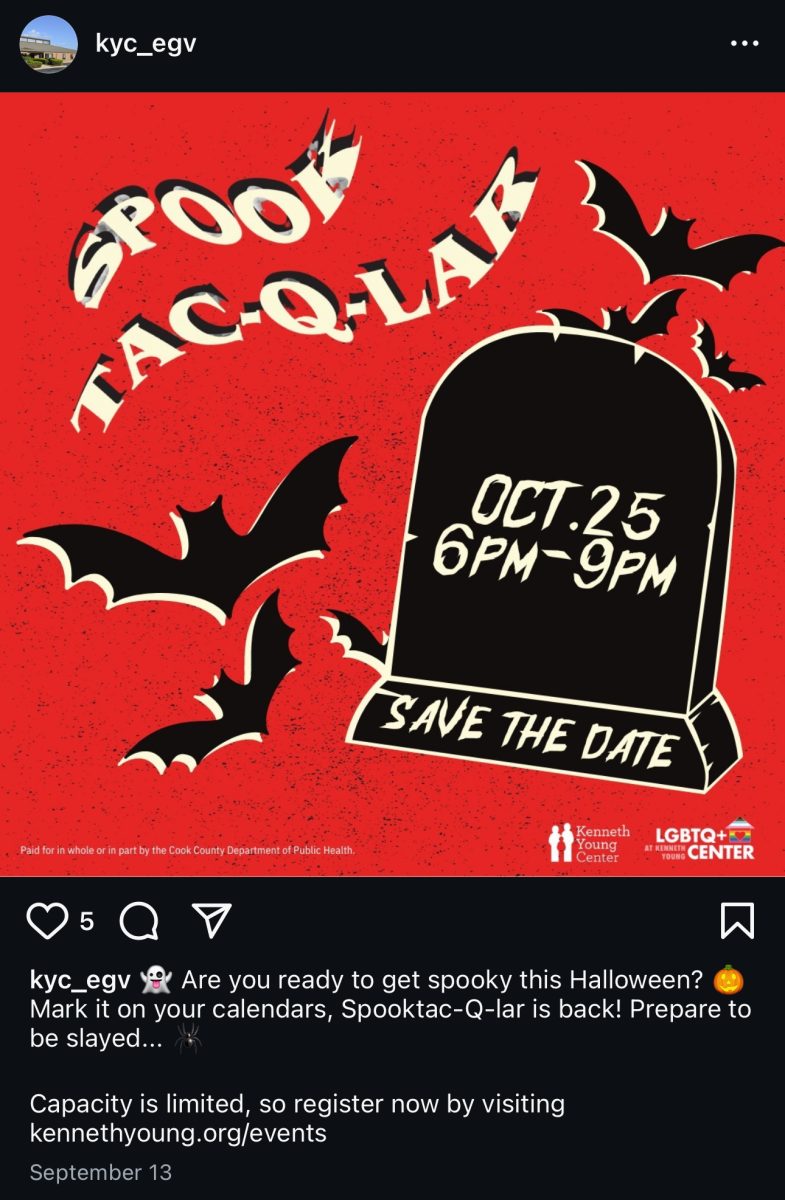For most people, Black Friday consists of running around to find the best deals and trying to get rid of all of the leftover turkey. For Harper professor Kirby Fellis, Black Friday this past year was a little different. He did not get a huge deal on a new TV, but received something even better: a call asking him to play trombone with Jennifer Hudson at the Chicago Theater on December 13th, 2024.
“Playing with Jennifer was surreal,” Fellis said. “As a musician, when I perform, I’m locked in like I’m playing a championship basketball game. Personally, the bigger the gig the better I play, but I usually have stage fright and anxiety until I play the first note, and then I’m in the zone.”
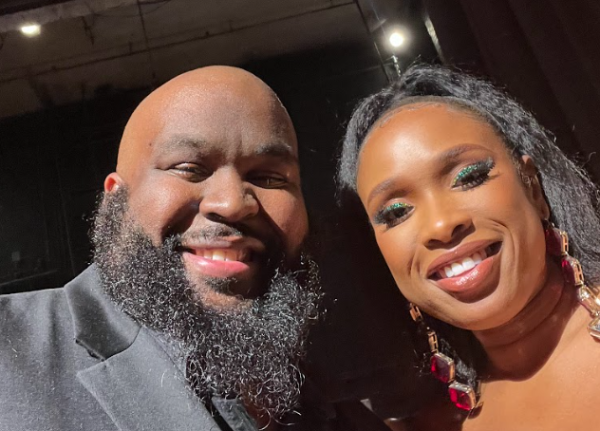
Other artists that Fellis has played with include: Darius Rucker of Hootie and the Blowfish and jazz singer and songwriter Kurt Elling. However, for Fellis, it is not about playing with celebrities or meeting big names, it is about finding a connection between the music and himself.
Fellis is a part of the LEAD (Leveraging Equity in Academia through Diversity) fellowship program at Harper, and a full-time music instructor and the jazz ensemble director.
He is of Caribbean descent, a heritage that values integrating music into its culture, which has inspired his deep love for music
In addition, his mother always played music in their house by artists like Barry White, Teddy Pendergrass, Patrice Rushen, Aretha Franklin, Anita Baker, and Luther Vandross. Fellis credits his mother and these artists for influencing him to pursue music.
“My parents would play records, and my mom would be like, ‘learn that song, play it for me,’” Fellis reminisces. “So I would just learn a bunch of songs and before I knew it, I could just hear really well.”
Fellis specializes in playing the trombone, but also plays the piano, low brass, baritone, euphonium, drums, and the bass.
In middle school, when Fellis was deciding on an instrument to play, he initially picked the drums. However, there turned out to be too many drummers at his school, so he was forced to choose a different instrument. For Fellis, this was his calling to play the trombone.
“The trombone became almost like it was fated,” Fellis said. “Now that I look back on it, as much as I like the drums, I love the trombone. So it’s like the instrument kinda came and got me.”
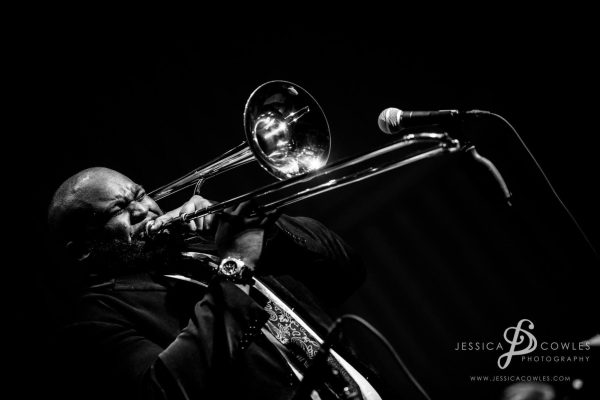
He attended high school in his hometown of Broward County, Florida, where he was a part of their jazz ensemble. According to Fellis, it is one of the best in the United States.
He recalls a time during his sophomore year when Rodney Whitaker, a bass player and jazz professor at Michigan State, visited his high school.
“He just had such a profound impact on me that day and a half [that] he was there. I was like, man, this is the cat I wanna be like,” Fellis reflected. “And he was super supportive.”
Fellis completed his Bachelors of Music from Michigan State University and his Masters of Music with an Individual Specialization in Jazz Pedagogy from Northern Illinois University.
He credits Whitaker as someone who impacted his trombone career as well as his professor at Northern Illinois, Reggie Thomas. Fellis explains that both of these people have taught him how to leave an impact as an educator.
“I wanna be a leader of my community,” Fellis expressed. “I wanna be a beacon to young black musicians, young musicians of any disenfranchised people, young white musicians, anyone who’s going to truly care and love for the music.”
Fellis notes how his band directors impacted him positively, which he now tries to emulate for his own students. He remembers an instance in which a student asked him why he seemed so confident in everything he does, and Fellis answered that his confidence comes from having good role models throughout his music career.
“Every director, band director, director of jazz studies, director of any musical program that I was under was a black man,” Fellis shared. “And I think having the image of a powerful, confident, competent, loving father figure type of black man made me feel like I could do that.”
Fellis feels he has gained a community through music, and has worked with a lot of musicians who have become very close friends.
He believes that being around his friends, especially in high school, who also became great jazz musicians, pushed him to be the best.
“[I was] surrounded by talented musicians. And the thing is, a lot of us were talented, but we worked very hard,” Fellis stated. “And being surrounded by great music all the time creates a different bar you have to have for yourself.”
He expressed how he has learned a lot from these people and experiences that have carried over into his adult life. Fellis notes that while he and his high school friends do not talk all of the time, they are there for each other when it matters.
“My musicianship is like that community, [and] music is just a reflection of humanity,” Fellis stated. “I think we get it twisted where it’s like if I’m a great musician, then it will show how great of a human I am. But, if I’m a great human, that will bleed into my music, and it will be easier to connect back with me.”
Fellis’s passion for music has granted him many opportunities. He has been asked to play in many groups, learning from each experience. For Fellis, his favorite opportunity and where he learned the most was working with the Count Basie Orchestra.
Fellis remembers listening to Basie as a child and loving his music ever since. He owns the full disc set of every Basie recording, with even more songs on vinyl.
Fellis was able to hear stories about Basie from band members who played with the artist before he died in 1984, and recalls how the conversations with the band members allowed him to recognize his worth as a musician since he was now playing with people who had taught him so much.
“It just hit me differently, and that will always be something I cherish,” Fellis said. “I’ve played with them more times since then, but in my heart, that was one of the first times I can say I was proud of myself.”
Although Fellis has had these influential experiences, he believes that “success” has to come from within, and being successful does not make you a different person than before. He recognizes that, at the end of the day, he still partakes in all of the mundane parts of life.
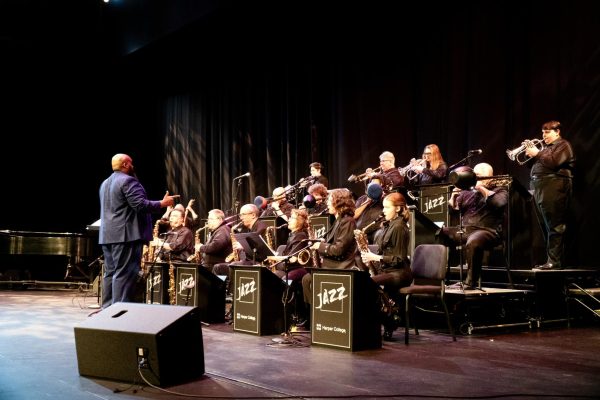
“I’m already very successful,” Fellis said. “And I start to put all those things in perspective. So, when I’m at my most tired and weakest, I really just think to myself: I have the luxury of playing an instrument for people for a living. I get to do it because I love it.”
For the future, Fellis wants to take everything he has learned and open the doors for those who want to play music, but don’t have the resources or access. He wants to create positive change for Harper’s music department by bringing his joy and dedication to the program.
“My hope here at Harper is to build a program that is so powerful, so unwavering, and so self-sustaining that it can almost be like a haven for musicians who aren’t welcome in other communities,” Fellis said. “Because that’s real in music.”


